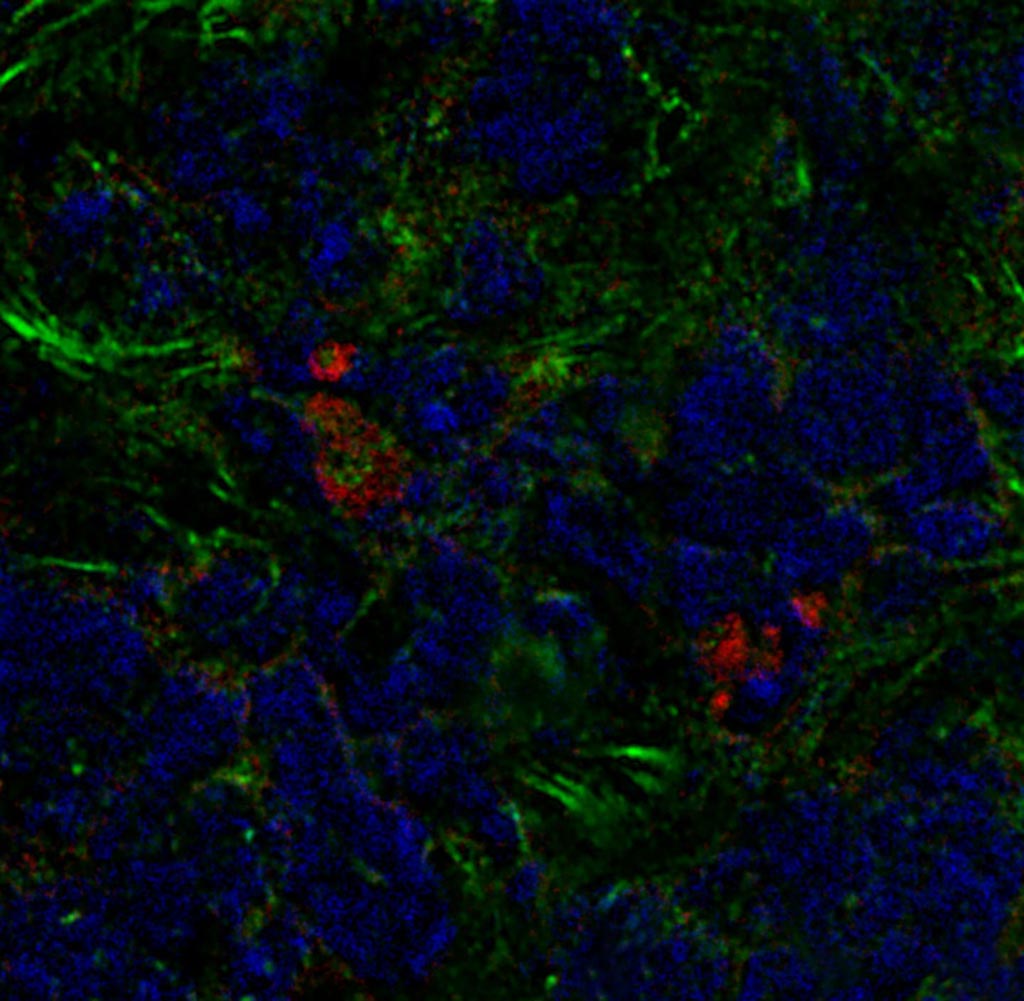Subpopulation of Fibroblasts Drives Breast Tumor Development
By LabMedica International staff writers
Posted on 03 Dec 2018
Breast tumors with reduced levels of the enzyme platelet-derived growth factor alpha (PDGFRalpha), which is caused by recruitment of a distinct subpopulation of bone marrow-derived cancer-associated fibroblasts, have been linked to a worse prognosis for the patient.Posted on 03 Dec 2018
Solid tumors contain large numbers of fibroblast cells that promote cancer cell proliferation, inflammation, and the formation of new blood vessels to supply the growing tumor with nutrients and oxygen. Cancer-associated fibroblasts (CAFs) are especially prominent in breast tumors, but the nature of their function and origin not been unresolved completely. To clarify these issues, investigators at Tel Aviv University (Israel) performed adoptive BM (bone marrow) transplantations in newly generated transgenic mice.

Image: A mouse breast tumor that contains bone marrow-derived fibroblasts (red) as well as other cancer-associated fibroblasts (green) (Photo courtesy of Raz et al., 2018).
They reported in the November 23, 2018, online edition of the Journal of Experimental Medicine that in the transgenic mouse model of human breast cancer development, BM-derived mesenchymal stromal cells (MSCs) were recruited to primary breast tumors and to lung metastases and differentiated to a distinct subpopulation of CAFs. Detailed analysis of this distinct CAF population revealed that BM-derived CAFs did not express the receptor for PDGFRalpha, which was previously shown to be a robust marker of fibroblasts. Consequently, recruitment of BM-derived CAFs to primary tumors and metastases resulted in a gradual decrease in PDGFRalpha levels, which was evident also in human breast tumors, and correlated with worse outcome.
The finding that PDGFRalpha expression distinguishes two functionally unique CAF populations may have implications for patient diagnosis and tailored therapeutics in breast cancer.
"Our study shows that the recruitment of bone marrow-derived fibroblasts is important for promoting tumor growth, likely by enhancing blood vessel formation," said senior author Dr. Neta Erez, professor of pathology at Tel Aviv University. "Understanding the function of these cancer-associated fibroblasts could form the basis of developing novel therapeutic manipulations that co-target bone marrow-derived fibroblasts as well as the cancer cells themselves."
Related Links:
Tel Aviv University













